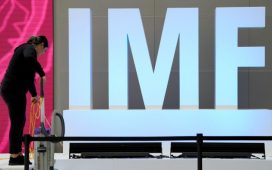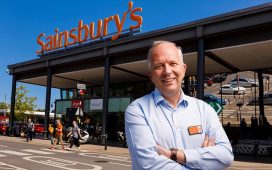LIVE
Haleon suffers weaker painkiller demand as FX movements knock profits
BT Group profits inch higher thanks to cost cutting efforts
Sainsbury’s boosts earnings outlook amid strong grocery sales
Shell unveils fresh £2.9bn share buyback as profits top £5.1bn
Tata pulls Port Talbot announcement at last minute leaving 3,000 steel jobs in limbo
British life sciences firm Instem faces crunch vote on £203m private equity buyout
Red Bull gives you wings: Son of founder scoops £500m payout
The Bank of England’s Monetary Policy Committee has opted for another pause, voting by a 6-3 margin to keep the base rate at 5.25 per cent.
The FTSE 100 is up 1.3 per cent in midday trading. Among the companies with reports and trading updates today are Shell, BT, Sainsbury’s, Haleon, Entain and British American Tobacco. Read the Thursday 2 November Business Live blog below.
> If you are using our app or a third-party site click here to read Business Live
LUNCH MONEY: Why the Bank of England held rates – and have they peaked
What another interest rate pause means for your mortgage and savings
Rates to stay higher for longer
Breaking: Bank of England holds interest rates at 5.25%
Punter-friendly football results cost Entain £45m
Ashmore Group shares top FTSE 350 fallers
OSB Group shares top FTSE 350 risers
Haleon suffers weaker painkiller demand as FX movements knock profits
BT Group profits inch higher thanks to cost cutting efforts
‘Supermarket retailing remains a high volume, low margin business’
BT Group profits inch higher thanks to cost cutting efforts
Sainsbury’s boosts earnings outlook amid strong grocery sales
The number of workers in low-paid jobs falls to one in 10
‘Shareholders in Shell have plenty to be pleased about’
Market open: FTSE 100 up 1%; FTSE 250 adds 1.5%
Shell unveils fresh £2.9bn share buyback as profits top £5.1bn
Trainline lifts guidance as revenues soar
ALEX BRUMMER: Bankers pull their punches amid signs the inflation tide may be turning
‘Oil prices look likely to continue recent rises which should mean a strong final quarter for Shell’
Smith & Nephew lifts guidance as new CFO joins
BT growth driven by cost controls
BT earnings beat forecast as Jansen exits
Fed holds U.S. interest rates at a 22-year high
Ladbrokes owner Entain eyes return to growth
Tata pulls Port Talbot announcement at last minute leaving 3,000 steel jobs in limbo
Sainsbury’s lifts profit expectations
Haleon suffers weaker US demand
British life sciences firm Instem faces crunch vote on £203m private equity buyout
Shell lines-up $3.5bn buyback
Red Bull gives you wings: Son of founder scoops £500m payout
BoE expected to hold base rate
























